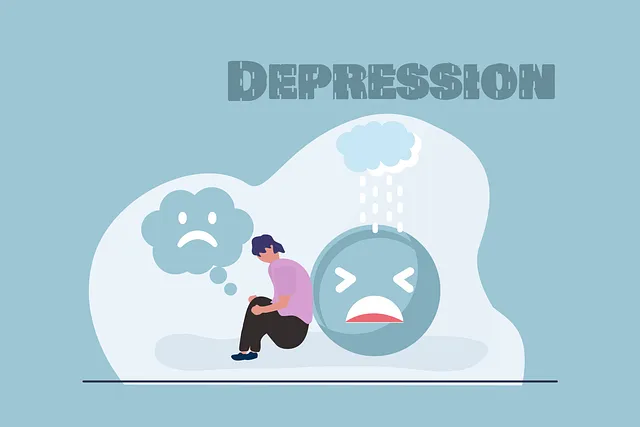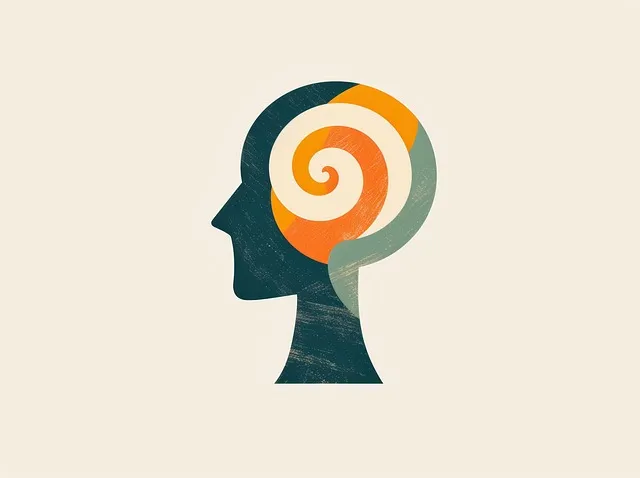Kaiser Permanente training programs in Lafayette focus on depression prevention and management through education, stress reduction, cognitive therapy, and community support. They empower individuals to recognize symptoms, offer early intervention, promote resilience, and reduce stigma, using methods like CBT, IPT, mindfulness, and compassion cultivation. These programs, paired with community resources, enhance mental well-being within the network and beyond.
Depression is a prevalent yet treatable condition affecting millions. This comprehensive guide explores effective prevention strategies inspired by industry leaders like Kaiser Permanente. We delve into understanding depression’s symptoms and risk factors, highlighting the importance of early intervention. Additionally, we showcase successful initiatives, such as Kaiser Permanente’s mental health education and Lafayette Community Resources’ training programs, offering valuable insights for building resilience. Learn how lifestyle changes, therapy, and medication can create a robust support network to combat depression.
- Understanding Depression: Symptoms and Risk Factors
- Kaiser Permanente's Approach to Mental Health Education
- Training Programs: Lafayette Community Resources
- Lifestyle Changes for Building Resilience Against Depression
- Seeking Support: Therapy, Medication, and Beyond
Understanding Depression: Symptoms and Risk Factors

Depression is a common yet serious mental health condition that affects millions worldwide. Recognizing its signs and understanding potential triggers is an essential first step in prevention. According to Kaiser Permanente training programs Lafayette, symptoms can vary widely but often include persistent feelings of sadness, loss of interest or pleasure in activities once enjoyed, changes in appetite and sleep patterns, fatigue, difficulty concentrating, and even thoughts of death or suicide.
Several risk factors contribute to the development of depression, including genetic predisposition, traumatic life events, chronic stress, and certain medical conditions. The good news is that proactive measures can help mitigate these risks. By adopting effective stress management techniques, improving communication strategies, and establishing a healthy self-care routine, individuals can significantly enhance their mental well-being and reduce the likelihood of depression.
Kaiser Permanente's Approach to Mental Health Education

Kaiser Permanente, a renowned healthcare organization, has implemented innovative strategies to combat depression and promote mental well-being. Their approach emphasizes education and early intervention through comprehensive training programs in Lafayette and other locations. These programs focus on empowering individuals to recognize and manage their mood effectively. The curriculum includes topics such as stress management techniques, cognitive behavioral therapy principles, and resilience-building activities.
By educating both the general public and mental health professionals, Kaiser Permanente aims to reduce the stigma surrounding depression and improve access to support services. Their training goes beyond basic Mood Management by incorporating Risk Assessment techniques for professionals to identify at-risk individuals early on. Additionally, they offer Trauma Support Services, recognizing that unaddressed trauma can contribute to depressive disorders. This holistic approach ensures a more effective response to mental health concerns within the community.
Training Programs: Lafayette Community Resources

Lafayette Community Resources offers valuable training programs aimed at empowering individuals to take charge of their mental wellness. These initiatives, often in collaboration with healthcare giants like Kaiser Permanente, focus on various aspects of emotional health. One such program is the Mental Wellness Podcast Series Production, which leverages audio content to share stories and strategies for coping with depression. Through these podcasts, participants gain insights into building empathy and enhancing emotional intelligence—crucial components in preventing and managing depressive episodes.
Additionally, Lafayette’s training sessions delve into practical Empathy Building Strategies, equipping individuals with the skills to recognize and respond to signs of distress in themselves and others. These programs create a supportive community where learning and sharing are fostered, ultimately contributing to the prevention of depression by promoting early intervention and robust mental health support within the local Kaiser Permanente network and beyond.
Lifestyle Changes for Building Resilience Against Depression

Making positive lifestyle changes is a powerful tool for building resilience against depression. According to Kaiser Permanente training programs in Lafayette, incorporating regular physical activity, maintaining a balanced diet, and prioritizing quality sleep are key components of emotional regulation. Engaging in activities that foster social connections and cultivating mindfulness practices can also significantly reduce the risk of mental illness and help manage symptoms.
The community-based programs at Kaiser Permanente Lafayette emphasize the importance of resilience building through education and support networks. By participating in these initiatives, individuals not only gain valuable coping strategies but also contribute to stigma reduction efforts. Overcoming depression becomes a collective endeavor, promoting well-being on both individual and societal levels.
Seeking Support: Therapy, Medication, and Beyond

Seeking support is a vital step in preventing and managing depression. Therapy plays a crucial role, offering individuals a safe space to explore their thoughts and emotions with the guidance of trained professionals. Kaiser Permanente training programs in Lafayette provide access to specialized therapists who can tailor treatments like cognitive-behavioral therapy (CBT) or interpersonal therapy (IPT) to address specific needs. These evidence-based approaches teach individuals coping strategies, help reframe negative thought patterns, and enhance problem-solving skills.
In addition to therapy, medication can be an effective tool for mood management. Antidepressants, often prescribed by healthcare providers, work to balance brain chemicals that influence mood. However, it’s essential to remember that these are just two aspects of a comprehensive approach. Compassion cultivation practices and emotional intelligence training, offered through various programs, empower individuals with self-compassion and the ability to understand and regulate their emotions more effectively.
In conclusion, preventing depression involves a multifaceted approach. By understanding its symptoms and risk factors, leveraging resources like Kaiser Permanente’s mental health education and local initiatives like Lafayette community training programs, adopting resilient lifestyle changes, and seeking appropriate support, individuals can effectively safeguard their mental well-being. These strategies, when implemented holistically, offer promising avenues to combat depression and promote a healthier, more vibrant community, with Kaiser Permanente and Lafayette community resources playing pivotal roles in this journey.






